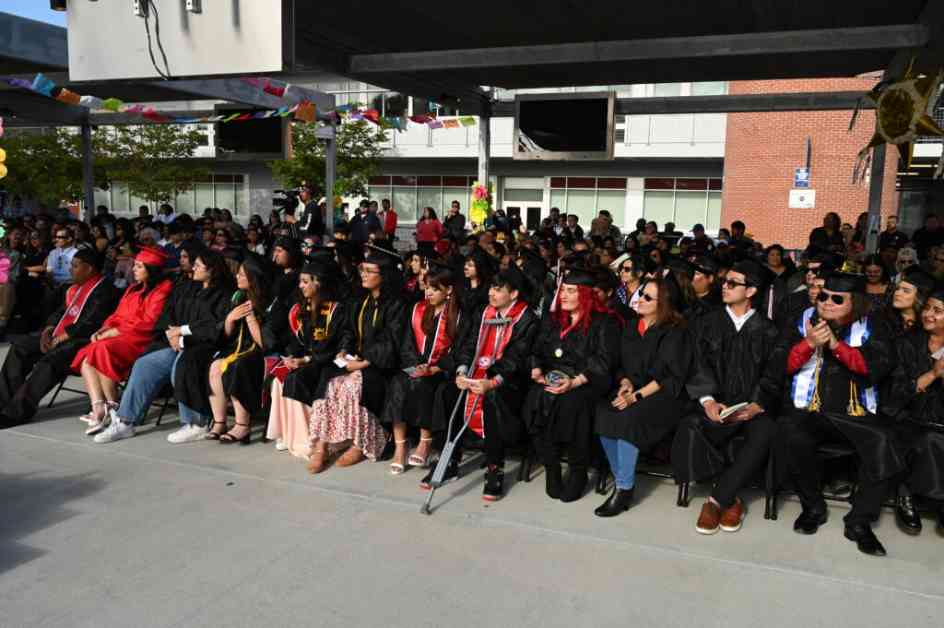California College Leaders Grapple with Uncertainty Amid Trump’s Diversity Program Cuts
The year 2024 marked a momentous occasion for San Diego City College as they celebrated their Chicano-Latina graduation ceremony. However, amidst the joy and pride, an air of uncertainty loomed over college campuses across California. The U.S. Department of Education had issued a directive to eliminate all race-based programs by the end of the month, leaving college leaders in a state of confusion, resistance, and concern.
The directive, outlined in a “dear colleague” letter from the Department’s Office for Civil Rights, not only prohibited considering race in admissions but also extended to various aspects of campus life, including hiring, promotions, scholarships, and graduation ceremonies. Failure to comply could result in the loss of federal funds, though the specifics of the funding at risk remained unclear.
California’s colleges and universities found themselves at a crossroads, with some officials vowing to maintain their inclusive programs while others grappled with the implications of the order. Greg Smith, chancellor of the San Diego Community College District, expressed confidence in their compliance with existing laws but voiced concerns over the potential impact on students if programs promoting inclusivity were dismantled.
The San Diego Community College District, encompassing San Diego City, San Diego Mesa, and San Diego Miramar colleges, hosts cultural celebrations like the Rite of Passage Ceremony for Black students and the Raza Grad Ceremony for Latino, Hispanic, and Indigenous students. These programs, along with others aimed at fostering diversity and support, are integral to the campus community.
Concerns and Commitments Across Higher Education Institutions
Amid the looming threat of funding cuts, institutions like the University of California (UC) and California State University (CSU) navigated the complexities of the directive. UC, known for its racially themed programs, reassured that its compliance with Prop. 209, which prohibits race-based preferences, shielded it from immediate repercussions.
UC Riverside, a pioneer in supporting diverse student populations, maintained its commitment to inclusivity despite the uncertainty surrounding federal funding. Similarly, CSU, a powerhouse in research and education, braced for potential impacts on its extensive federal funding streams, emphasizing the need for collaboration with higher education partners to assess the statewide implications.
Collaborative Efforts and Statewide Impact
While colleges and universities sought clarity and guidance in the face of unprecedented challenges, the California Community Colleges Chancellor’s Office engaged in conversations with state and federal partners to mitigate the impact of the directive. With over 116 community colleges under its purview, the office emphasized the importance of aligning critical work with state and federal laws to uphold equity and access for all students.
As the higher education landscape grappled with the implications of the order, some campuses and college districts, including Sacramento State University and the Los Angeles Community College District, remained silent as they evaluated the potential consequences. Their hesitance mirrored the broader uncertainty felt across the educational sector as leaders navigated the intersection of federal mandates and institutional values.
In conclusion, the directive from the U.S. Department of Education cast a shadow of uncertainty over California’s colleges and universities, prompting a reevaluation of race-based programs and policies. While college leaders remained steadfast in their commitment to diversity and inclusion, the looming threat of funding cuts underscored the delicate balance between federal compliance and institutional values. As the higher education sector grappled with the ramifications of the order, a spirit of collaboration and resilience emerged, signaling a collective effort to uphold equity and access in the face of evolving challenges.




















